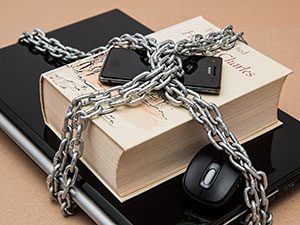 More technology that is coming out today is offering the ability to connect to the internet. Home appliances, network utilities like wireless access points, security cameras, and so many more devices, are all capable of connecting to the internet to offer some functionality. As more devices connect to the internet, this creates more targets for hackers and other cyber criminals.
More technology that is coming out today is offering the ability to connect to the internet. Home appliances, network utilities like wireless access points, security cameras, and so many more devices, are all capable of connecting to the internet to offer some functionality. As more devices connect to the internet, this creates more targets for hackers and other cyber criminals.
Locking down your online devices can help protect your office, employees, and give you peace of mind. As a managed IT provider, we always recommend that online devices maintain minimum security standards that can help prevent hacking or data loss.
Protecting Your Online Devices
Nowadays, typically when you purchase a new device such as an appliance or a security camera, it will offer the ability to connect to the internet. More often, these devices require an internet connection in order to provide some or any functionality. When connecting a new device to the network, you should take some basic steps to ensure that it is properly secured from the outside world.
You should always change the default username and password for devices that connect to the internet. Many online devices will include a default username and password that can be used to login and setup your online device. You can typically change the default login credentials within the device’s settings during or after setup.
It’s important to remember that any device that touches the internet can be a possible target from the outside world. A compromised device can lead hackers to other potential targets within your network. A good way to protect other devices on the network is to ensure that anything that is not business critical is kept on a separate network from non-critical devices.
You can set up multiple networks within your router’s settings by creating new network IP ranges or creating a guest wireless network that guest devices can connect to.
Securing your router is also a key step in making sure the devices on your network are safe as cyber criminals may also directly target your router. Make sure your router’s default login is changed to something more secure. You should use a long password that incorporates multiple characters and numbers to prevent brute force intrusions. It’s also important that your wireless security settings are using a secure password that’s hard to guess and at least WPA2 level security.
It's also important to update the firmware on your online devices such as your cameras, firewalls, and any other device which connects to your internet. Manufacturers will periodically release updates to the firmware that runs these devices in order to improve security, patch security vulnerabilities, and improve device performance.
Taking just a few minutes to secure your devices can go a long way in keeping your network secure. Prevention is always key in keeping your information and network secure. Natural Networks is a managed IT security services provider, and we consistently work with businesses of all sizes to keep their networks and online devices secure. If you are interested in learning more, give us a call today.



